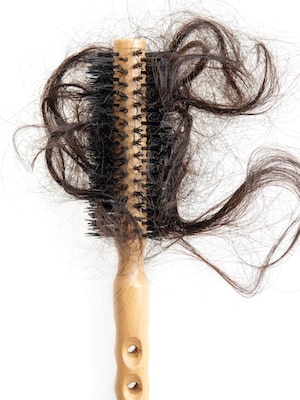Female Hair Loss – Sign of Health Issues in Patients With Darker Skin Tone?
The loss of hair on the scalp is not limited to male patients which means women can also experience balding or thinning hair on the scalp. While hair loss can have a negative impact on both the self-image and self-confidence of a female patient, there is a chance the condition can also indicate that other health problems might be present in female hair loss patients including those with a darker skin tone.
Female Hair Loss – A Experienced Dermatologist Speaks Out
An expert from the American Academy of Dermatology recently shared some information about various types of hair loss that are seen in women who have darker skin tones. She also discussed some of the common medical conditions that are often associated with hair loss as well as some treatment options that patients need to know.
In a news release from the American Academy of Dermatology, Dr. Valerie Callender, professor of dermatology at Howard University College of Medicine in Washington, D.C., said, “Research shows that women who experience hair loss can also have other medical conditions like diabetes, acne, and breast cancer. By recognizing the signs of hair loss and seeing your dermatologist as soon as possible, you may be able to limit the progression, hold on to the hair you have, and discover any other underlying medical conditions you may have.”
Please note that while a dermatologist can assess and diagnose the issues related to female hair loss on the scalp, a board-certified and experienced hair transplant specialist can perform the same task.
Female Hair Loss – Possible Issues for Women with Darker Skin Tones
 One condition that was discussed by the Academy was central centrifugal cicatricial alopecia (CCCA). This is a condition that can result in the loss of hair in the center of the scalp of the patient. In addition, it is often seen in women with darker skin tones including nearly 15% of women with a skin tone that is black in color.
One condition that was discussed by the Academy was central centrifugal cicatricial alopecia (CCCA). This is a condition that can result in the loss of hair in the center of the scalp of the patient. In addition, it is often seen in women with darker skin tones including nearly 15% of women with a skin tone that is black in color.
It is important to detect CCCA at an early stage of its development as it can cause scarring through the destruction of hair follicles. Plus, once the hair follicles are completely scarred, the regrowth of hair can be rather difficult which means the loss of hair on the scalp can be a permanent issue.
A hair transplant surgeon or a dermatologist can properly diagnose the condition and then create a treatment plan that can include elements such as antibiotics, corticosteroid injections, and topical steroid medications. These treatment options can prevent the scarring on the scalp from getting worse while also offering relief from pain related to CCCA.
According to Callender, some of the health conditions that are common among African American women with CCCA include high cholesterol, breast cancer, high blood pressure, and diabetes. A medical professional can further examine the current health of the patient to determine if the hair loss is actually a symptom of another disease impacting the body.
Female Hair Loss – A Common Medical Issue for Many Women
The issue of female pattern hair loss is a common one and it impacts millions of women of all skin tones across the globe. The hair that starts thinning on the top of the scalp might be caused by a hereditary condition that leads to a widening of the center hair part on the person experiencing the hair loss. It can also result in other medical issues or conditions such as acne due to increased hormones, and high blood pressure on the part of the patient.
Female Hair Loss – Related to Hairstyles and Hair Products?
The hair loss could also be the result of the ongoing wearing of a hairstyle that pulls the hair on an ongoing basis in a certain area of the scalp. It is important to remember that traction alopecia can often be experienced by women with darker skin tones due to the way they often wear their hair. Callender said, “One of the first things I ask my patients who have a history of braids is if it hurts when their hair is braided. Getting your hair done shouldn’t hurt, so it they have pain, it’s an indicator that they could be developing traction alopecia.”
The ingredients in hair products can also play a part in hair loss for patients with darker skin tones as they have hair that is often dry, coarse, or fragile. This is particularly true of women of African descent, and they can have hair that is dried out and easy to break due to some shampoos and disorders of the scalp. They should make sure their hair product choices contain ingredients such as shea butter, and vitamins A and E that can work to moisturize the hair.
Callender also said, “When treatments are not effective to prevent hair loss, a permanent solution is to consider a hair transplant, which creates natural-looking results. Hair transplants are most effective in patients with traction alopecia and female pattern hair loss. While patients with CCCA aren’t always ideal candidates for a hair transplant due to scarring, it is possible for them to have success.”